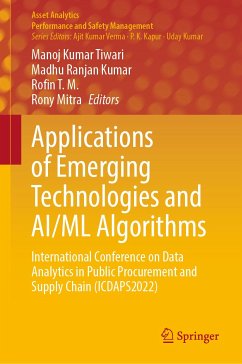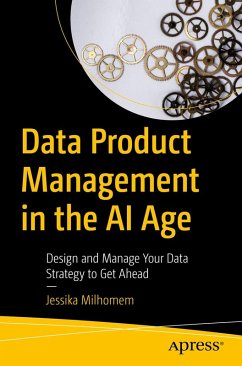
The Illusion of Control (eBook, PDF)
Project Data, Computer Algorithms and Human Intuition for Project Management and Control
Versandkostenfrei!
Sofort per Download lieferbar
56,95 €
inkl. MwSt.
Weitere Ausgaben:

PAYBACK Punkte
28 °P sammeln!
This book comprehensively assesses the growing importance of project data for project scheduling, risk analysis and control. It discusses the relevance of project data for both researchers and professionals, and illustrates why the collection, processing and use of such data is not as straightforward as most people think. The theme of this book is known in the literature as data-driven project management and includes the discussion of using computer algorithms, human intuition, and project data for managing projects under risk. The book reviews the basic components of data-driven project manag...
This book comprehensively assesses the growing importance of project data for project scheduling, risk analysis and control. It discusses the relevance of project data for both researchers and professionals, and illustrates why the collection, processing and use of such data is not as straightforward as most people think. The theme of this book is known in the literature as data-driven project management and includes the discussion of using computer algorithms, human intuition, and project data for managing projects under risk.
The book reviews the basic components of data-driven project management by summarizing the current state-of-the-art methodologies, including the latest computer and machine learning algorithms and statistical methodologies, for project risk and control. It highlights the importance of artificial project data for academics, and describes the specific requirements such data must meet. In turn, the book discusses a wide variety of statistical methods available to generate these artificial data and shows how they have helped researchers to develop algorithms and tools to improve decision-making in project management. Moreover, it examines the relevance of project data from a professional standpoint and describes how professionals should collect empirical project data for better decision-making. Finally, the book introduces a new approach to data collection, generation, and analysis for creating project databases, making it relevant for academic researchers and professional project managers alike.
The book reviews the basic components of data-driven project management by summarizing the current state-of-the-art methodologies, including the latest computer and machine learning algorithms and statistical methodologies, for project risk and control. It highlights the importance of artificial project data for academics, and describes the specific requirements such data must meet. In turn, the book discusses a wide variety of statistical methods available to generate these artificial data and shows how they have helped researchers to develop algorithms and tools to improve decision-making in project management. Moreover, it examines the relevance of project data from a professional standpoint and describes how professionals should collect empirical project data for better decision-making. Finally, the book introduces a new approach to data collection, generation, and analysis for creating project databases, making it relevant for academic researchers and professional project managers alike.
Dieser Download kann aus rechtlichen Gründen nur mit Rechnungsadresse in A, B, BG, CY, CZ, D, DK, EW, E, FIN, F, GR, HR, H, IRL, I, LT, L, LR, M, NL, PL, P, R, S, SLO, SK ausgeliefert werden.












